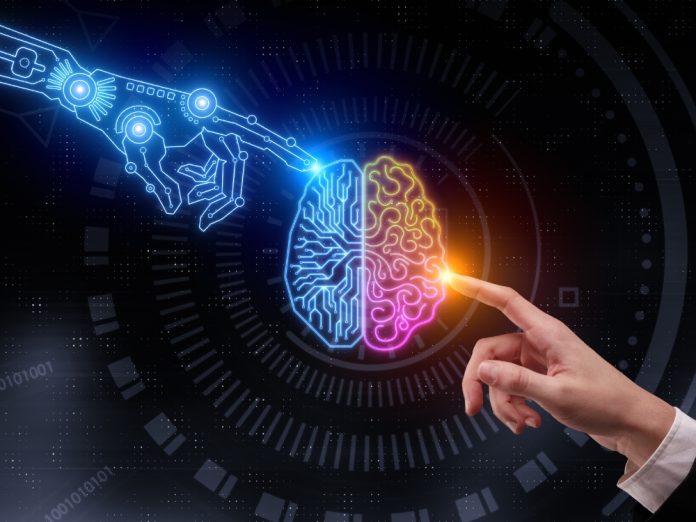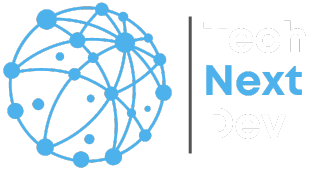Artificial Intelligence (AI) has consistently evolved, transforming industries, enhancing productivity, and shaping the way we live and work. As we move into 2024, the landscape of AI is set to undergo significant changes. In this article, we will explore the key trends and predictions for AI in 2024, offering insights into how this technology will continue to revolutionize various sectors.
1. AI in Healthcare: Precision Medicine and Beyond
One of the most promising areas for AI in 2024 is healthcare. AI has already made strides in diagnostics, treatment planning, and drug discovery, but 2024 will see a surge in precision medicine. AI algorithms can analyze genetic information, lifestyle data, and medical history to create personalized treatment plans for patients. This shift towards individualized care will improve patient outcomes and reduce the cost of healthcare.
Moreover, AI-powered wearable devices will play a pivotal role in preventive healthcare. These devices will monitor vital signs in real-time, predict potential health issues, and alert medical professionals before they escalate. As AI becomes more integrated into healthcare systems, it will help alleviate the burden on healthcare providers and empower patients to take control of their health.
2. AI and the Future of Work: Automation and Job Transformation
AI is reshaping the workforce, and 2024 will witness an acceleration in automation. Routine tasks in industries such as manufacturing, logistics, and customer service will continue to be automated, leading to increased efficiency and reduced operational costs. However, this automation trend raises concerns about job displacement.
Rather than eliminating jobs, AI is expected to transform them. New roles will emerge, requiring skills in AI management, data analysis, and human-AI collaboration. Workers will need to upskill and reskill to stay relevant in this AI-driven world. Governments and businesses will play a crucial role in providing training programs to help workers transition into new roles.
Additionally, AI will enhance decision-making processes in the workplace. AI-driven analytics will provide valuable insights, enabling organizations to make data-driven decisions faster and more accurately. This will not only improve business outcomes but also reduce human biases in decision-making.
3. AI in Education: Personalized Learning and EdTech Revolution
The education sector is also on the brink of a transformation, thanks to AI. In 2024, AI-powered personalized learning platforms will become more prevalent. These platforms will adapt to each student’s learning style, pace, and preferences, providing a tailored educational experience. This will help bridge the gap between students with different learning abilities and ensure that no one is left behind.
AI-driven tools will also assist teachers in grading, lesson planning, and identifying students who may need extra support. This will free up educators to focus on more meaningful interactions with students, fostering a more engaging and effective learning environment.
Furthermore, AI will play a significant role in the EdTech industry. Virtual classrooms, AI-driven tutors, and immersive learning experiences using augmented reality (AR) and virtual reality (VR) will become more common. These innovations will make education more accessible and engaging for students worldwide.
4. AI Ethics and Regulation: Navigating the Challenges
As AI continues to advance, ethical concerns and the need for regulation will become more pressing in 2024. Issues such as data privacy, bias in AI algorithms, and the potential misuse of AI for malicious purposes will require careful consideration.
Governments and international organizations will work towards establishing comprehensive AI regulations. These regulations will focus on ensuring transparency, accountability, and fairness in AI systems. Companies that develop AI technologies will need to adhere to these guidelines to gain public trust and avoid legal repercussions.
Additionally, AI ethics will be a hot topic in 2024. Researchers and ethicists will explore ways to minimize bias in AI algorithms, ensuring that AI systems do not perpetuate societal inequalities. The development of explainable AI (XAI) will also gain traction, making AI decision-making processes more transparent and understandable to humans.
5. AI in Finance: Revolutionizing Banking and Investments
The financial sector is no stranger to AI, but 2024 will see further advancements in this field. AI-powered algorithms will continue to revolutionize banking and investment strategies. Robo-advisors will become more sophisticated, providing personalized financial advice based on real-time data analysis. This will make financial services more accessible to a broader audience, democratizing wealth management.
AI will also enhance fraud detection and prevention in the financial industry. Machine learning algorithms will analyze vast amounts of transactional data to identify suspicious activities, helping financial institutions combat fraud more effectively.
Moreover, AI-driven predictive analytics will assist investors in making informed decisions. By analyzing market trends, economic indicators, and historical data, AI will provide valuable insights into potential investment opportunities and risks. This will empower investors to optimize their portfolios and achieve better returns.
6. AI in Entertainment: Redefining Creativity
The entertainment industry is another area where AI is making waves. In 2024, AI will play a significant role in content creation, personalization, and distribution. AI algorithms will analyze user preferences and behavior to recommend personalized content, ensuring that viewers have a more engaging and satisfying experience.
AI will also assist in the creative process. From generating music and art to writing scripts and designing video games, AI will become a valuable tool for artists and creators. However, this raises questions about the role of human creativity in a world where machines can produce content. The collaboration between humans and AI in the creative process will be a key area of exploration in 2024.
Furthermore, AI will continue to enhance virtual and augmented reality experiences. Immersive entertainment, such as AI-driven interactive movies and virtual concerts, will become more popular, providing audiences with unique and immersive experiences.
7. AI and Climate Change: Tackling Global Challenges
In 2024, AI will play a crucial role in addressing one of the most pressing global challenges—climate change. AI-powered systems will help monitor environmental changes, predict natural disasters, and optimize resource management. For example, AI can analyze satellite data to detect deforestation, track carbon emissions, and predict the impact of climate change on ecosystems.
AI will also assist in developing sustainable solutions. From optimizing energy consumption in smart cities to designing eco-friendly transportation systems, AI will contribute to reducing the carbon footprint of various industries. Additionally, AI-driven research will accelerate the development of renewable energy technologies, such as solar panels and wind turbines, making them more efficient and cost-effective.
Furthermore, AI will enable more efficient recycling and waste management processes. By analyzing waste patterns and identifying recyclable materials, AI can help reduce waste and promote a circular economy.
8. The Future of AI: A Collaborative Vision
As we look ahead to 2024, it’s clear that AI will continue to shape our world in profound ways. However, the future of AI is not just about technological advancements; it’s also about collaboration between humans and machines. The key to harnessing the full potential of AI lies in developing systems that complement human abilities rather than replace them.
Businesses, governments, and individuals will need to work together to ensure that AI is used ethically and responsibly. By fostering a collaborative vision, we can unlock the benefits of AI while mitigating its risks.
Conclusion
The future of artificial intelligence in 2024 is both exciting and challenging. From healthcare and finance to education and entertainment, AI will continue to revolutionize industries and improve our lives. However, with these advancements come ethical considerations and the need for regulation.
As we navigate this AI-driven future, it’s essential to strike a balance between innovation and responsibility. By doing so, we can ensure that AI becomes a force for good, driving progress and creating a better world for all.
With the rapid pace of AI development, staying informed about the latest trends and predictions is crucial. As we move forward into 2024, embracing the potential of AI while addressing its challenges will be key to shaping a future that benefits everyone.



